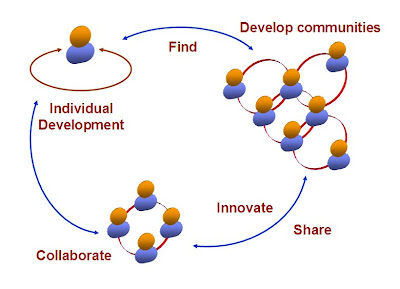Definition: Massively Multi-player Online Games (MMOGs)
- MMOGs are relevant (as tracked by MMOGCHART.COM and shown in the graph below)
- If we believe that online collaborations work (which I do)
- Then studying MMOG collaborations is relevant.

MMOGs connect hundreds of thousands of players simultaneously in persistent worlds where they engage in collaborative activities to have fun.
Development
Character and skill development are central to MMOG collaboration.
- Motivation = fun + development of characters
- This development is in the form of:
- Skills
- Equipment (armour, weapons, gold)
- Experience
- Reputation
- This enables player to tackle bigger challenges, with bigger rewards
Finding Each Other
Finding the right people to work together solves half of the problem. Working together as a group is important and players can easily find others based on their:
- Skills and characteristics
- Communities they belong to
- Where they are at the moment (a point in time)
- What they need to, or want to, accomplish
Innovation and Learning
MMOG players have a lot to learn. For example in fantasy-based MMOGs they have to learn:
- Spells
- Quests and tactics
- Navigating hostile territories
- Rating of knowledge and guides published
- Communities point members to the most useful information
- A just-in-time learning ethos that allows players to learn what they need, when they need it.
- A culture of sharing, as it is mutually beneficial.
So what have we learnt?

Collaboration doesn't always happen naturally. MMOGs have shown as that If we want to promote collaboration then the following should be in place:
- Individuals need a mechanism to find others easily, based on a range, and several dimensions, of criteria
- Communities will develop where there are shared interests, challenges and goals.
- These communities will become the custodians of knowledge, enabling "just-in-time-learning" as they innovate and collaborate to solve challenges
- The solving of these problems (or execution of a collaborative task) should lead to an individual's development (or reward)
- Everyone needs to benefit (I know that this may seem cynical)
- ... whilst having fun!